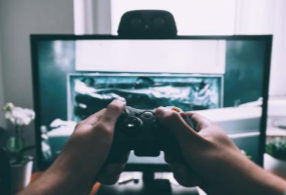As video games worldwide continue to be more appealing to children, kids worldwide are becoming increasingly addicted to video games each year. Approximately 8.5% of youths are now addicted to gaming or diagnosed with the mental health condition known as “Gaming Disorder.” Youths can become addicted to games very easily, and it has become such a significant problem that it was recognized as a mental health condition in 2019 by the World Health Organization. This proves that addiction is more than just a bad habit or problem, as it has been officially added to the International Classification of Diseases (ICD-11) in 2022.
The most effective games that addict children and teenagers are popular titles like Fortnite, Roblox, League of Legends, Minecraft, Call of Duty, and various mobile games. Games with progressing levels, or those that tend not to save progress very often, are also quite addicting. After a long time playing these types of video games, youth tend to become more addicted.
The reasons for youth addiction to gaming come from many factors. One significant factor is that games release the “feel-good” chemical dopamine, leading to cravings for more, causing the youth to feel the need to continue playing. This is commonly seen in games with a rewarding mechanism—after every level, players receive rewards such as coins, new skins, or even new characters to play as. This mechanism causes the youth’s brain to release the aforementioned “feel-good” chemical, preventing them from stopping.
Gaming addiction has proven to have negative effects on the youths affected. A clear example includes mood changes and self-care habits. According to Family Addiction Specialist Private & Discreet, a teen addicted to gaming might become easily irritable, constantly anxious, and may exhibit tendencies of depression. They can miss sleep because they want to stay up playing games or may prefer to stay in their room all day just to play. They may spend more than eight and a half hours online daily for entertainment, and exposure to social media triggers the addiction.













